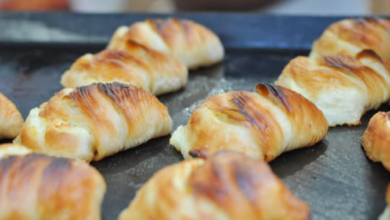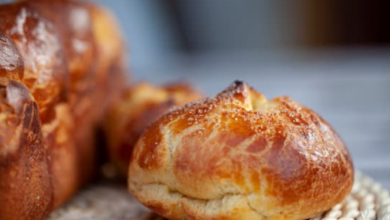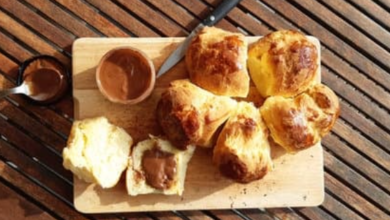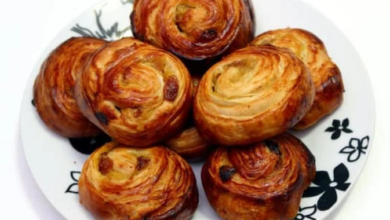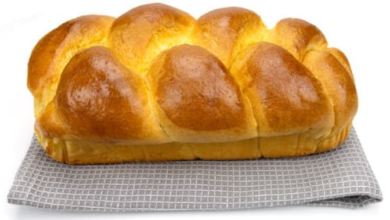Should You Overproof Brioche Dough?

What To Know
- Reshape the dough into a loaf or rolls and proof it again for a shorter period, allowing it to regain some structure.
- If the dough is too slack, add a small amount of flour and knead it in to strengthen the gluten.
- Overproofing brioche dough can be a common pitfall for bakers, but by understanding the proofing process, recognizing the signs of overproofing, and implementing preventative measures, you can consistently create perfectly balanced, delectable brioche.
Brioche dough, renowned for its rich, buttery flavor and soft, airy texture, is a culinary delight. However, achieving the perfect brioche can be a delicate balancing act, and one of the most common questions bakers face is: can you overproof brioche dough?
Understanding the Proofing Process
Proofing is an essential step in the bread-making process that allows the dough to rise and develop its characteristic texture. During proofing, yeast in the dough consumes sugars and releases carbon dioxide gas, which creates small air pockets within the dough. This expansion gives brioche its light and fluffy interior.
Signs of Overproofing
While proofing is crucial, overproofing can compromise the quality of your brioche. Here are some telltale signs that your dough has overproofed:
- Deflated dough: Overproofed dough loses its elasticity and becomes slack, resulting in a flat, dense brioche.
- Sour taste: Overproofing allows bacteria to develop, leading to an unpleasant sour flavor in the bread.
- Collapse: If the dough overproofs for an extended period, it may collapse under its own weight, losing its structure and volume.
Consequences of Overproofing
Overproofing brioche dough can have several detrimental effects:
- Compromised texture: Overproofed brioche becomes dense, chewy, and lacks the desired airiness.
- Reduced flavor: The extended fermentation time can diminish the brioche’s rich, buttery flavor.
- Poor slicing: Overproofed dough is difficult to slice cleanly, resulting in ragged edges and uneven pieces.
Preventing Overproofing
To avoid overproofing, it’s essential to follow these tips:
- Monitor proofing time: Proof the dough for the recommended amount of time, usually 1-2 hours at room temperature or overnight in the refrigerator.
- Use a cool proofing environment: Cold temperatures slow down yeast activity, preventing overproofing.
- Control dough temperature: Keep the dough at a consistent temperature of 70-80°F (21-27°C) for optimal yeast activity.
- Punch down the dough: If you suspect the dough is overproofing, gently punch it down to release excess gas and reset the proofing process.
Troubleshooting Overproofed Dough
If you accidentally overproof your brioche dough, there are a few steps you can take:
- Reshape and proof: Reshape the dough into a loaf or rolls and proof it again for a shorter period, allowing it to regain some structure.
- Add flour: If the dough is too slack, add a small amount of flour and knead it in to strengthen the gluten.
- Bake immediately: Overproofed dough can still be baked, but it may not have the same optimal texture and flavor.
Recommendations: Mastering the Art of Brioche
Overproofing brioche dough can be a common pitfall for bakers, but by understanding the proofing process, recognizing the signs of overproofing, and implementing preventative measures, you can consistently create perfectly balanced, delectable brioche.
What People Want to Know
Q: Can I overproof brioche dough in the refrigerator?
A: Yes, overproofing can occur in the refrigerator if the dough is left for too long. Cold temperatures slow down yeast activity, but it can still continue to ferment over time.
Q: How do I know when my brioche dough is ready to bake?
A: When the dough has doubled in size and springs back when gently pressed, it’s ready to bake. An overproofed dough will feel loose and sticky.
Q: Can I use overproofed brioche dough to make other baked goods?
A: Yes, overproofed dough can be used to make pancakes, waffles, or muffins. However, it may not have the same texture and flavor as properly proofed dough.
